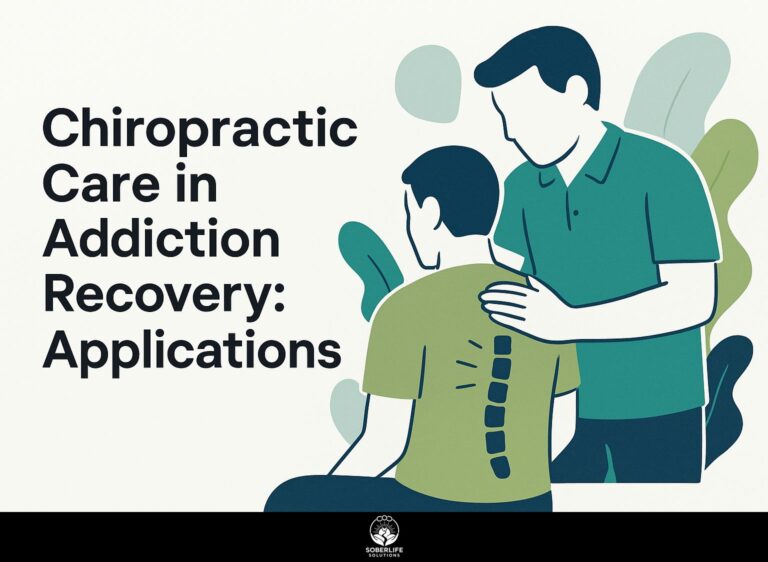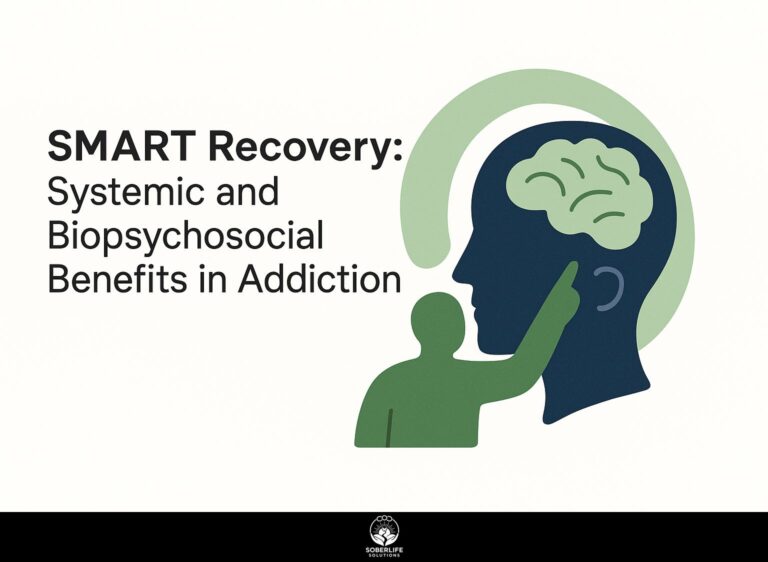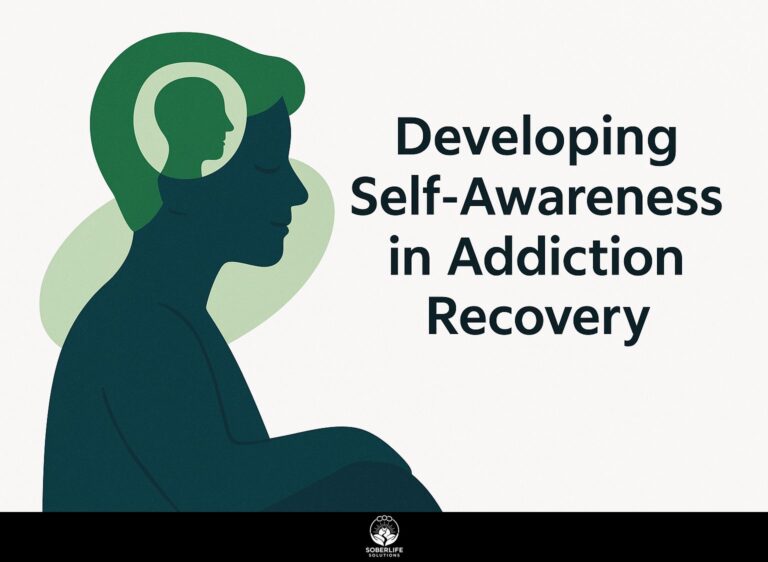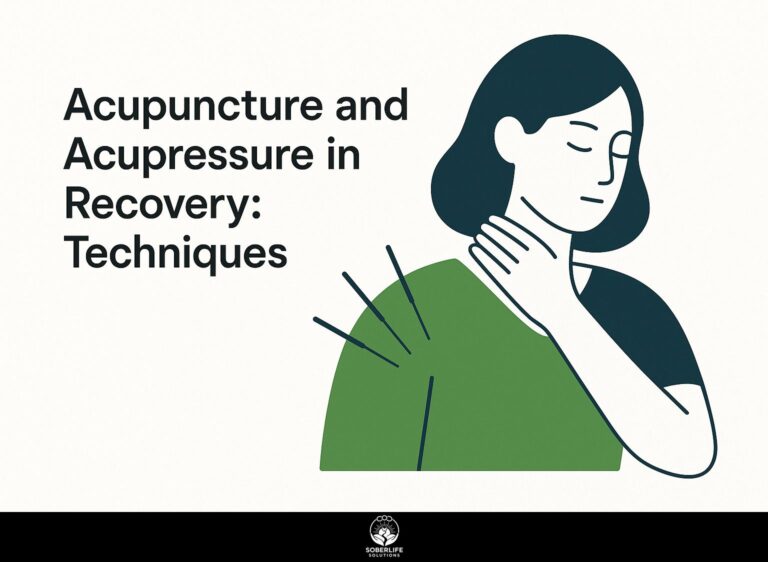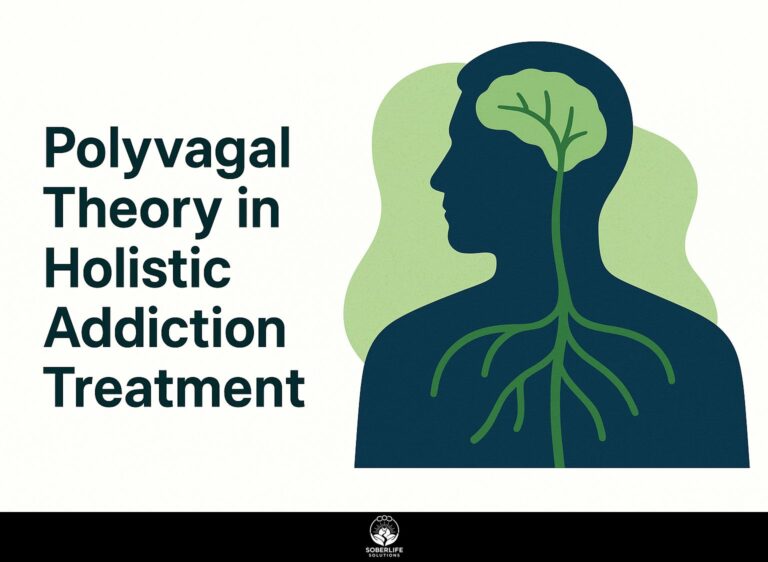Holistic Therapies in Alcoholism Recovery: Techniques and Benefits
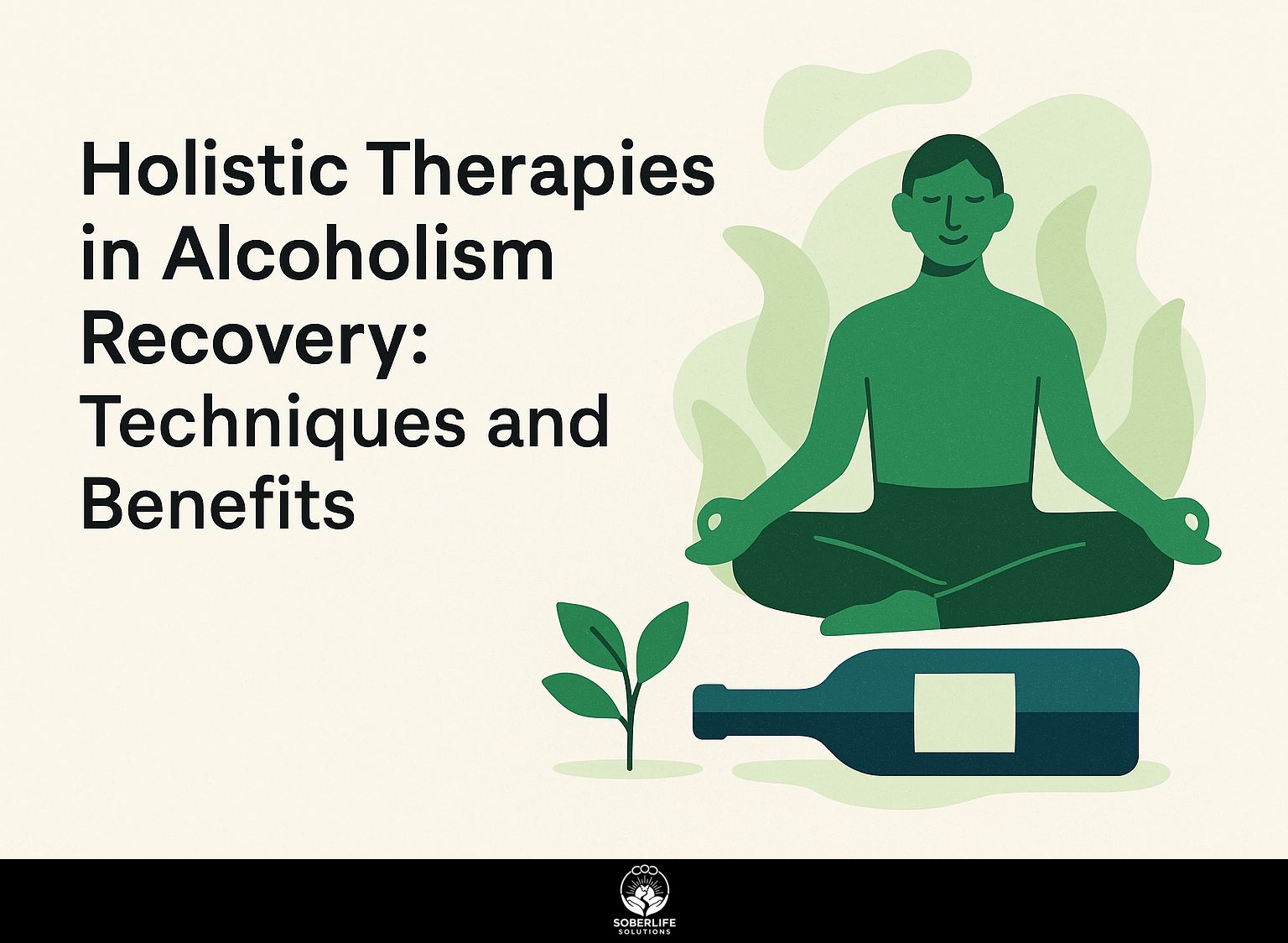
Finding a way to maintain sobriety often involves more than standard alcohol treatment; it needs therapies that focus on the mind, body, and spirit as a whole. These methods address emotional needs and improve the addiction recovery process. In this article, we look at different whole-person treatments, their benefits, and how including them in your recovery process can lead to meaningful change. Join us to learn about therapy options for treating alcoholism.
Key Takeaways:
The Role of Alternative Therapies in Alcoholism Recovery
Whole-person therapies are being more recognized in addiction treatment as essential for addressing the challenging parts of alcoholism. Incorporating mindful practices can be particularly beneficial, as highlighted in resources such as living mindfully every day, which can support sustained recovery. According to research shared by the Whole Health Library, these complementary approaches are increasingly important for sustained recovery.
Understanding Holistic Approaches
Various therapies focus on creating harmony between mind, body, and spirit, which is important for successful recovery.
Combining various methods can greatly improve recovery results. For instance, combining mindfulness practices with nutritional therapy can address emotional and physical well-being simultaneously.
Begin by incorporating daily mindfulness meditation sessions, which can be as short as 10 minutes, to improve mental clarity. Alongside this, a nutrition-focused plan, such as the Mediterranean diet rich in omega-3s and antioxidants, supports brain health.
By concentrating on these areas, people may feel less anxious and see better overall health, leading to a more complete recovery process.
Advantages of Using Whole-Person Healing Methods
Using a combination of different treatments can greatly improve emotional support and mental health during recovery.
Practices such as mindfulness meditation, yoga, and acupuncture can greatly improve the recovery process.
Mindfulness meditation, for example, has been shown to reduce anxiety by 30% according to a 2021 study published in JAMA Psychiatry. Yoga enhances your body and strengthens your emotions, helping you cope with stress more effectively. Meanwhile, acupuncture can alleviate symptoms of depression, providing a natural alternative to medications.
To implement these therapies, consider working with qualified practitioners or using apps like Headspace for meditation or online yoga classes from platforms like Yoga with Adriene. For more insight, some leading researchers in the field from the American Psychological Association have explored the benefits of mindfulness meditation extensively. Living mindfully is also beneficial during recovery, as discussed in our detail on living mindfully every day.
Common Holistic Therapies Used
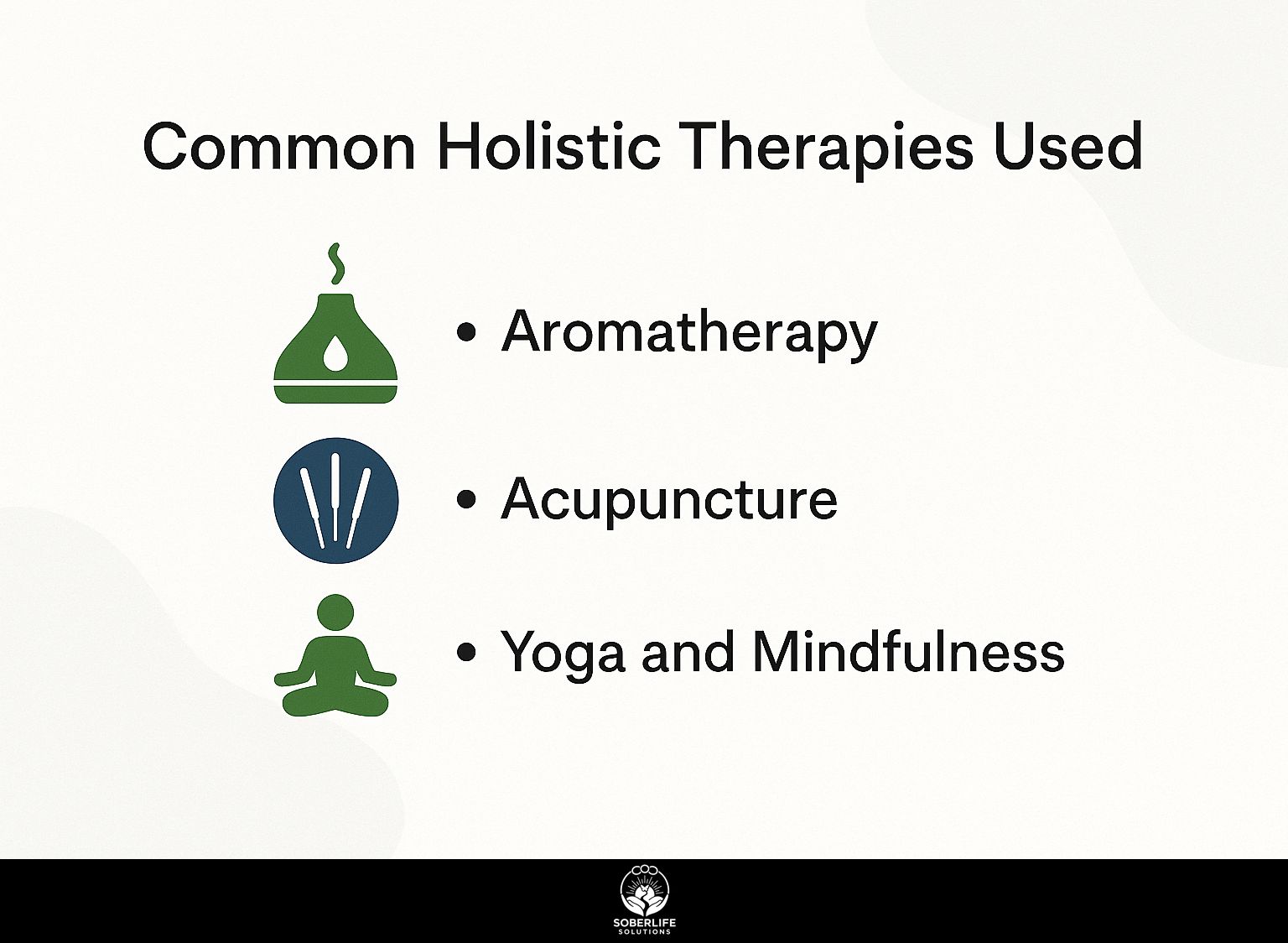
Different therapies are often used in addiction recovery, each providing specific advantages and methods.
Aromatherapy
Aromatherapy uses essential oils to help with emotional recovery and stress relief, serving as a helpful resource in overcoming addiction.
Specific essential oils can be particularly beneficial during withdrawal.
For instance, lavender oil is renowned for its calming properties and can be used in a diffuser or added to a warm bath to alleviate anxiety.
Bergamot oil can help lift mood and is effective in improving emotional balance; consider diluting it with a carrier oil for topical application.
Peppermint oil boosts energy and focus, making it a useful choice to improve drive during recovery sessions.
Using these oils daily can make the emotional environment more soothing.
Acupuncture
Acupuncture therapy helps regulate the body’s energy flow, proving beneficial for detoxification and managing withdrawal symptoms.
Research indicates that acupuncture can significantly reduce cravings and alleviate anxiety often associated with addiction. For instance, a study published in the Journal of Substance Abuse Treatment found that participants receiving acupuncture experienced a 50% reduction in cravings for alcohol and opioids.
Specific points, such as Shenmen (HT7) and Neiguan (PC6), are frequently targeted to promote emotional balance and minimize withdrawal reactions. The efficacy of these techniques is supported by research published in the ScienceDirect journal, highlighting acupuncture’s bidirectional role in treating drug addiction.
Adding acupuncture to a treatment plan that includes counseling and support groups increases the chances of long-term recovery and better overall health.
Yoga and Mindfulness
Yoga and mindfulness meditation help people become more aware of themselves and develop ways to manage stress, which are important for recovering from addiction over the long term.
Adding these practices to your daily habits can bring significant change. Start with short, guided mindfulness exercises; apps like Headspace or Calm offer structured sessions lasting just a few minutes.
For yoga, consider joining a beginner’s class or using YouTube channels like Yoga with Adriene, which provide accessible routines. Aim for at least 10 minutes of mindfulness or yoga each day.
Gradually increase the duration of this activity over time, turning it into a routine that benefits both mental well-being and bodily health.
Benefits of Complete Therapies for Mental Health
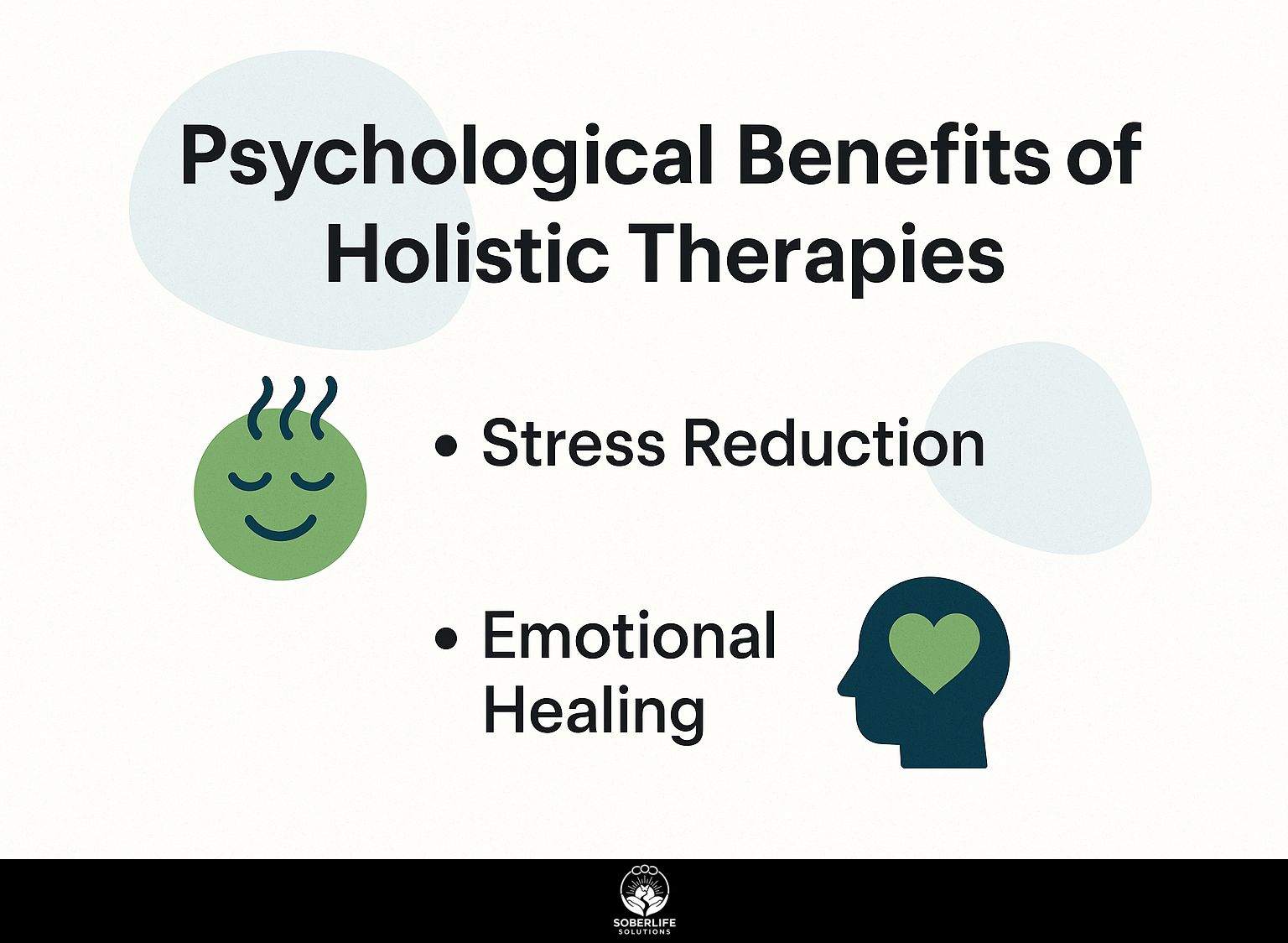
Therapies that focus on the whole person provide mental health benefits that help in achieving lasting recovery. When considering the broader impact of these therapies, it is important to understand their role amidst ongoing issues such as the opioid crisis.
Stress Reduction
Whole-body treatments help lower stress, which is important for keeping emotions steady during healing.
Techniques such as mindfulness meditation and progressive muscle relaxation can significantly reduce stress.
Mindfulness meditation encourages present-moment awareness, leading to a 30% improvement in emotional regulation, as evidenced by a 2018 study.
Progressive muscle relaxation, where you tense and relax muscle groups sequentially, has been shown to decrease anxiety levels by up to 40%. Including these treatments in daily routines boosts health, speeds up recovery, calms the mind, and reduces cortisol levels in the body.
Emotional Healing
Therapies that consider the whole person support emotional healing by improving self-awareness and assisting ongoing recovery.
Methods such as counseling and massage therapy play significant roles in this process.
Counseling, for example, offers a safe place where people can talk about their feelings and learn how to handle them better; many people find cognitive-behavioral therapy very helpful.
Massage therapy can ease physical tension that often accompanies emotional distress, promoting relaxation and better mental clarity.
Clients often mention they better understand and manage their emotions after regular sessions, showing the real benefits of including these therapies in a recovery plan.
Challenges and Considerations
While therapies that consider the whole person can be very helpful, they also bring challenges that people need to work through for successful recovery.
To smoothly include whole-body therapies into regular treatment plans, start by collaborating with healthcare providers. For example, if you are thinking about acupuncture, make sure your doctor knows and agrees.
Next, research reputable practitioners through platforms like Yelp or local community boards. Establish clear communication-sharing progress and any changes in symptoms can help tailor your treatment effectively.
Record your experiences to find which therapies work best, changing your approach when necessary. This organized approach improves the likelihood of effective integration and increases therapy advantages. This is crucial as sober support systems play a significant role in sustaining recovery efforts. For an extensive analysis of this trend, our comprehensive study of sober support systems examines effective strategies.
Frequently Asked Questions
What Are Whole-Person Treatments in Alcoholism Recovery?
Holistic therapies are alternative treatments that pay attention to the mind, body, and spirit together. These treatments focus on tackling the main cause of alcoholism and support general health during recovery.
What are some examples of Whole-Body Approaches in Alcoholism Recovery?
Some examples of whole-person treatments in alcoholism recovery include acupuncture, meditation, yoga, massage therapy, and nutrition counseling.
What are the benefits of using whole-person approaches in alcoholism recovery?
The advantages of using whole-person treatments in recovering from alcoholism are less stress and cravings, better mental and emotional health, greater self-awareness and self-care, and better overall physical health.
What are the differences between holistic therapies and traditional methods in treating alcoholism?
Traditional ways of recovering from alcoholism often focus on the physical addiction. Treatments that consider the whole person also address the emotional and mental factors that can contribute to alcoholism.
Do Whole-Person Approaches Support Recovery from Alcohol Addiction?
Holistic therapies help people recover from alcoholism by addressing all parts of a person’s health and providing a complete method for healing.
Can alternative therapies be used alongside standard treatment methods?
Yes, alternative therapies can be used with standard treatment methods, as they can work together to help with lasting recovery.


